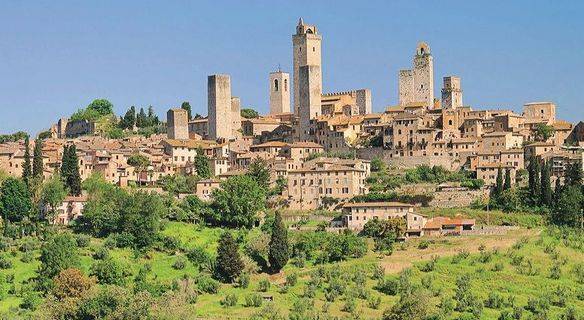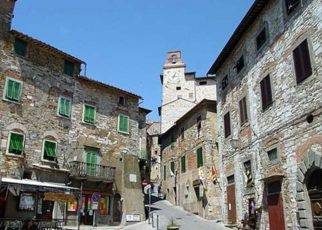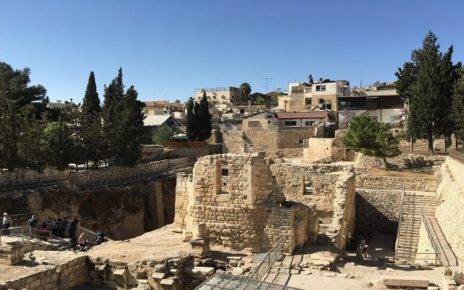The Italian region of Tuscany is in prime position for those who want to visit the main touristic cities with minimal amount of travelling. Tourists can take trains from Florence to Milano, Rome, Bologna and Venice, all within less than 3 hours on the high-speed train. Even more convenient is the fact that Tuscany’s capitol, Florence, is also centrally-located and thus makes it an easy base-point for day trips to nearby historic and characteristic villages/towns either by train, bus or car (for those who attempt to compete with the infamous Italian drivers).
So whether you’re looking to travel along the coast or head into the hills, here are several day-trip proposals about where to go and what you can expect to see. For repeat visitors to Florence, these trips that cross the border into the neighboring region of Liguria will deepen your experience of Tuscan/Ligurian/Italian culture and expose you to rich and varied landscape, cuisine, architecture.
Buon viaggio!
Characteristic Port Towns and Fishing Villages:
Porto Venere, Liguria –
A charming, characteristic brightly colored port town nestled among the cliffs of the rocky Ligurian coast. It was designated a World Heritage Site by UNESCO in 1997. Don’t miss the popular harbor promenade with great views of the beach and access to plenty of bars, gelaterie and seafood trattorie. After a stroll the historic center, make a visit to 12th century castle Andria Doria which is worth the short hike for spectacular views of the sea as well as the 13th century church of San Pietro.
Arrive either by car from highway A12, by bus from La Spezia (you arrive at La Spezia via train from Florence) or by boat leaving from La Spezia and Cinque Terre.
Cinque Terre, Liguria –
Travel a little further west along the Ligurian coast and you’ll hit the first of the five famous fishing villages (cinque terre) named Riomaggiore. All five villages are connected by a walking path as well as a train and ferry. Resting high on the coastal rocks, the villages each offer a small square and gathering area (piazzetta), a small variety of trattorie, bars and snack shops, and plenty of walking through narrow, colorful streets- an impressive yet calming stroll past olive and lemon trees as well as the local folks decorative front doors. Gorgeous views and small rocky beaches. Don’t forget to try the local sweet wine “Sciachetra’.

Best to arrive by train from Florence or ferry from La Spezia. *If you take the train don’t hesitate to stop off in Massa and/or Carrara for a visit to the marble quarries (Michelangelo himself chose his marble directly from these cliffs).
Livorno, Toscana –
Still a working commercial port, Livorno is an attractive, busy merchant town (and LIguria’s capital) that is a magnet for folks interested in nautical/military/marine life. Termed the “ideal” city during it’s planning stages in Renaissance times, Livorno was born an integrated, open, cosmopolitan city and hints of this remain today. Check out the variety of canals, bridges and narrow streets, as well as take a stroll along the main promenade, check out the gorgeous villas, and don’t miss the local specialty- Cacciuco which is a fish stew with garlic, tomato and toasted bread.
Easy to arrive by train or bus directly from Florence or take the Fi-Pi-Li by car.
Charming Medieval Towns:
Monteriggione, Toscana-
This small, non-touristy town should be in your top 10 if you’re in the mood for the charm and mystery of medieval stone streets, fortress walls, tall stone towers circled by birds, and rolling hillsides of olive grove and vineyard. Located just southeast of Florence in the province of Siena, Monteriggione is one of the classic, well-preserved 13th century towns set protectively atop a hill and circled by a tall fotress-like wall with a few designated entrances or portals. Grab a pizza or schiacciata, or a glass of wine and plate of pappardelle pasta with wild boar sauce or roast pidgeon.
Best to arrive by car since there are no direct trains and the buses can be infrequent.
Lucca, Toscana-
Just west of Florence, nestled in the plains, is one of the most pleasant, pedestrain-centered jewels of Tuscany. Lucca is another walled-in medieval and Renaissance center with Etruscan origins with a few charming piazzas, antique markets, great foodie stops and fabulous strolling (or biking) potential. (Bikes can be rented to ride the tree-covered bike-path atop the brick walls.) Don’t miss the 13th century Guinigi tower which offers great views and is crowned by several holm oak trees (symbols of rebirth). Don’t miss the Lucan tortelli (meat filled egg-pasta with rich ragu sauce).
Arrive by car (A1 Florence-Viareggio), train or bus directly from Florence.
Montepulciano, Toscana-
For wine lovers, painters, architectural enthusiasts and the poet in each of us, Montepulciano is located not far from Monteriggione in the province of Siena. Just like San Gimignano, Montalcino and Monteriggione, Montepulciano is also known for its charming, medieval towers and sloping, zig-zagging stone streets. In addition, however, is its infamy in the world of wine and food: the DOCG Vino Nobile di Montepulciano and regional pici pasta, lentils and cheese.
Arrive by car (A1 towards Siena) or bus from Florence.
Whether you rent a car or depend on public transportation, it’s easy to get out into the country and explore region. There are beaches and bold-colored architecture in Liguria, medieval stone-work in Tuscany and lots of exquisite food, wine and panoramic visions in between.




